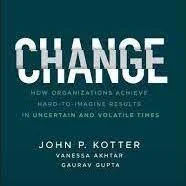Bill Novelli · Founder, Business for Impact Program, Georgetown · Co-founder Porter Novelli
/Founder Business for Impact Program at Georgetown University
Co-founder Porter Novelli Global PR Agency · Former CEO of AARP
This is one of the biggest problems that we have in this country. So, on the one hand, we know that we have to take personal responsibility for ourselves, our own health, our families – it's up to us. As some people like to say, you're on your own. And we have to balance that against the concept that we're all in this together. You know, the idea that it takes a village and both sides essentially disrespect the other side. They criticize the other side. No, we're not in this together. It's your own responsibility, and vice versa. If we're going to be good citizens, and we're going to make progress, we have to see both sides of that equation. That's not easy to do.





















